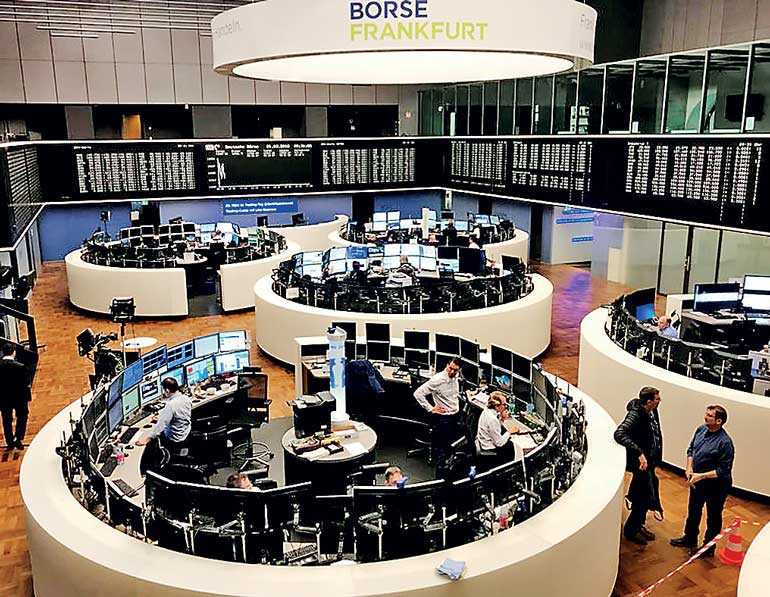Saturday Feb 21, 2026
Saturday Feb 21, 2026
Tuesday, 4 December 2018 00:00 - - {{hitsCtrl.values.hits}}

LONDON (Reuters): A truce between US and Chinese leaders on trade tariffs provided boosted global markets on Monday, fuelling a nearly 1% surge on world stocks and pushing emerging currencies higher against the dollar.
European share benchmarks opened sharply higher, with Germany’s DAX – the most sensitive to China and trade war fears – leading the way with a 2.5% rise to its highest level since 14 November, and Wall Street, too, was set for a stronger session.
The gains came after China and the United States agreed at the weekend to halt additional tariffs on each other. The deal prevents their trade war escalating as the two sides try to bridge differences with fresh talks aimed at reaching a deal within 90 days.
US President Donald Trump, also, said: “China has agreed to reduce and remove tariffs on cars coming into China from the US Currently the tariff is 40%.” That helped boost European autos more than 4%.
“We have a deal. That’s wonderful news for global financial markets and signalling the start for a year-end rally in risky assets,” said Woodman Asset Management Global Macro Strategist Bernd Berg.
“We are going to see a rally in emerging market and US equities, EM currencies and China-related assets like Australia. I expect the rally to last until year-end.” MSCI’s all-country world index climbed 0.9% in its sixth straight day of gains and hit its highest level since 9 November. Emerging equities rose 2.1% and were set for their strongest day in a month.
Asian shares kicked off the gains, with Chinese mainland markets rising more than 2.5% while Japan’s Nikkei gained as much as 1.3% to a six-week high.
The risk-on mood drove the dollar 0.4% lower against a basket of currencies while against the euro it slumped 0.6%.
The greenback has already come under some pressure from the recent subtle shift in the US Federal Reserve’s policy communication to a slightly more dovish stance. Comments by Federal Reserve Chair Jerome Powell were interpreted by markets as hinting at a slower pace of rate hikes.
Powell was scheduled to testify on Wednesday to a congressional Joint Economic Committee but his hearing is expected to be postponed to Thursday because major exchanges will be closed on Wednesday in honour of former US President George H. W. Bush, who died on Saturday.
Berenberg Economist Florian Hense said the market rally would not bring a return to a more hawkish Fed stance.
“We would need to see some rebound in economic activity to lift expectations of more rate hikes,” he said.
The Powell comments had sent US Treasury yields lower but they pulled back from the over two-month lows hit on Friday as 10-year yields rose three basis points to 3.04% .
Germany’s 10-year government bond, the benchmark for the euro area, was set for its biggest one-day yield jump in a month, rising four basis points to a high of 0.347%. Yields on riskier southern European bonds fell across the board, with Italian yields down around 10 bps to new two-month lows.
Emerging currencies were among the main beneficiaries of dollar weakness, with an MSCI index up 0.6%. It was led by China’s yuan which rose one% for its biggest daily gain since February 2016.
“Such positive sentiment won’t fade very soon… (the 90-day) period is not short, it’s long enough to soothe market sentiment,” said a trader at a foreign bank in Shanghai.
Elsewhere, oil soared more than five%, a positive start after it had posted its weakest month in more than 10 years in November, losing more than 20% as global supply outstripped demand.